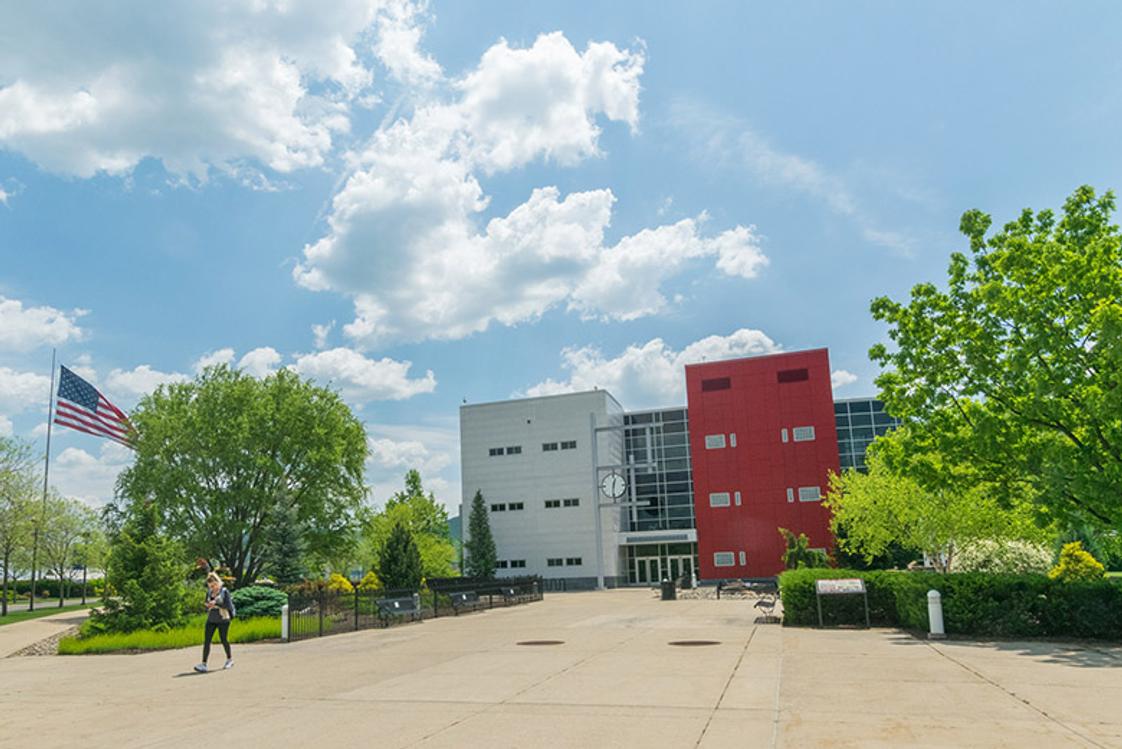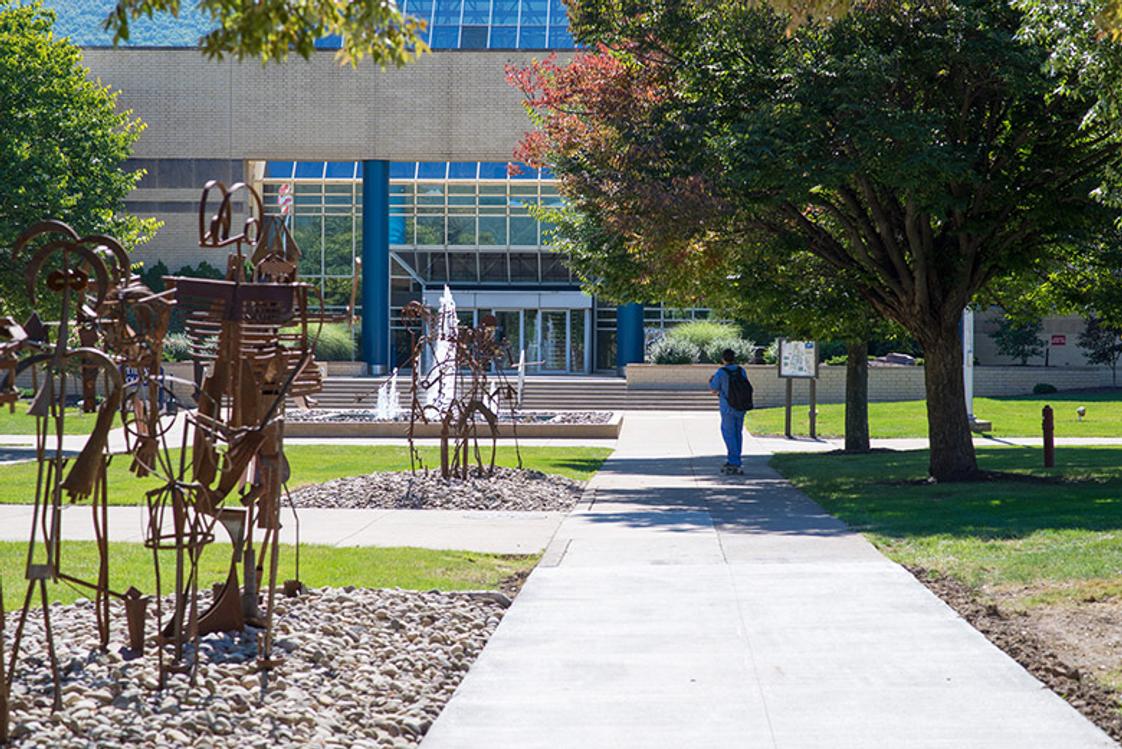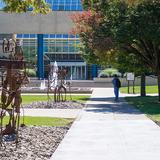- Pennsylvania College of Technology, a special mission affiliate of Penn State, is a national leader in applied technology education. Penn College offers more than 100 bachelor, associate, and certificate majors to nearly 5,600 students in careers ranging from manufacturing, design, transportation, and construction to hospitality, health, business, and natural resources. Business/industry connections, small classes, industry-standard equipment, and faculty with work experience contribute to strong graduate placement rates. The full college experience awaits those desiring on-campus housing, Greek Life, student organizations, and NCAA Division III athletics.
School Highlights
Pennsylvania College of Technology serves 6,277 students (58% of students are full-time).
The college's student-teacher ratio of 16:1 is higher than the state community college average of 15:1.
Minority enrollment is 17% of the student body (majority Hispanic), which is less than the state average of 48%.
Quick Facts (2026)
- Enrollment: 6,277 students
- In-state tuition: $17,610
- Out-state tuition: $26,415
- Acceptance Rate: 72%
- Student-teacher ratio: 16:1
- Minority enrollment: 17%
- Source: Verified school update
Top Rankings
Pennsylvania College of Technology ranks among the top 20% of public schools in Pennsylvania for:
School Overview
The teacher population of 385 teachers has stayed relatively flat over five years.
Pennsylvania College of Technology
(PA) Community College Avg.
Carnegie Classification
Baccalaureate/Associate's Colleges: Mixed Baccalaureate/Associate's
Not applicable, not in Carnegie universe (not accredited or nondegree-granting)
Institution Level
Four or more years
At least 2 but less than 4 years
Institution Control
Public
Private not-for-profit
Total Faculty
385 staff
59 staff
Number of Programs Offered
148
29
School Calendar
Student Body
The student population of Pennsylvania College of Technology has grown by 48% over five years.
The student-teacher ratio of 16:1 has decreased from 18:1 over five years.
The Pennsylvania College of Technology diversity score of 0.30 is less than the state average of 0.68. The school's diversity has grown by 10% over five years.
Total Enrollment
6,277 students
461 students
Student-Teacher Ratio
16:1
15:1
# Full-Time Students
3,632 students
325 students
# Part-Time Students
2,645 students
136 students
# Enrollment Undergraduate
625 students
298 students
# Full-Time Undergraduate Students
3,615 students
326 students
# Full-Time Graduate Students
17 students
10 students
# Part-Time Undergraduate Students
2,637 students
151 students
# Part-Time Graduate Students
8 students
12 students
Total Dormitory Capacity
n/a
330 students
% American Indian/Alaskan
n/a
n/a
% Asian
1%
5%
% Hispanic
6%
11%
% Black
4%
15%
% White
83%
52%
% Hawaiian
n/a
3%
% Two or more races
3%
3%
% Non Resident races
n/a
1%
% Unknown races
3%
10%
Diversity Score
0.30
0.68
College Completion Rate (Students who graduate in less than 4 years)
n/a
60%
College Completion Rate (Students who graduate in 4 years or more than 4 years)
49%
36%
Average Graduate Earnings (10 Years)
$43,200
$34,900
Tuition and Acceptance Rate
The public in-state tuition of $17,610 is more than the state average of $11,723. The in-state tuition has stayed relatively flat over four years.
The public out-state tuition of $26,415 is more than the state average of $15,818. The out-state tuition has stayed relatively flat over four years.
In-State Tuition Fees
$17,610
$11,723
Out-State Tuition Fees
$26,415
$15,818
Tuition Notes
Full-year, 30 credits.
% Students Receiving Some Financial Aid
84%
88%
Median Debt for Graduates
$24,000
$13,000
Median Debt for Dropouts
$9,040
$6,260
Acceptance Rate
72%
78%
SAT Reading
n/a
460
SAT Math
n/a
470
SAT Writing
n/a
435
ACT Composite
n/a
20
ACT English
n/a
20
ACT Math
n/a
21
ACT Writing
n/a
7
Sports
Total Sports Offered
9 sports
Sports
BaseballBasketball
Cross CountryGolf
SoccerSoftball
TennisVolleyball
Wrestling
Extracurriculars
Total ExtracurricularsTotal Extra-curric.
16 extracurriculars
ExtracurricularsExtra-curric.
Club or Organization:
Recreational Athletic Programs:
https://www.pct.edu/campuslife/studentactivities/organizations.htm
Recreational Athletic Programs:
and KickIntramural Basketball
Intramural DodgeballIntramural Flag Football
Intramural Indoor SoccerIntramural Indoor Volleyball
Intramural KickballIntramural Powder Puff Football
Intramural PuntIntramural Sand Volleyball
Intramural Slow Pitch SoftballIntramural Tennis
Intramural Ultimate FrisbeeIntramural Wiffleball
Pass
Source: 2024 (or latest year available) Integrated Postsecondary Education Data System (IPEDS) , School Administrators
Frequently Asked Questions
How much does Pennsylvania College of Technology cost?
Pennsylvania College of Technology's tuition is approximately $17,610 for In-State students and $26,415 for Out-State students.
What is the acceptance rate of Pennsylvania College of Technology?
The acceptance rate of Pennsylvania College of Technology is 72%, which is lower than the state average of 78%.
What sports does Pennsylvania College of Technology offer?
Pennsylvania College of Technology offers 9 interscholastic sports: Baseball, Basketball, Cross Country, Golf, Soccer, Softball, Tennis, Volleyball and Wrestling.
What is Pennsylvania College of Technology's ranking?
Pennsylvania College of Technology ranks among the top 20% of community college in Pennsylvania for: Largest student body and Most Programs Offered.
Recent Articles

Community College vs. Bootcamps for Tech Careers in 2026
Community college vs. bootcamps in 2026. Compare cost, outcomes, credentials, and hiring trends to choose the best tech career path.

How to Build a Class Schedule That Fits Your Life (Spring 2026)
Learn how to build a class schedule that fits your life with expert tips, updated strategies for Spring 2026, and practical planning tools for students and families.

Top 10 Jobs for Community College Graduates in 2026
Meta Description: Discover high-demand jobs for community college graduates, with current salary trends, costs, and career pathways.















